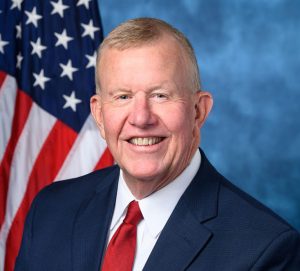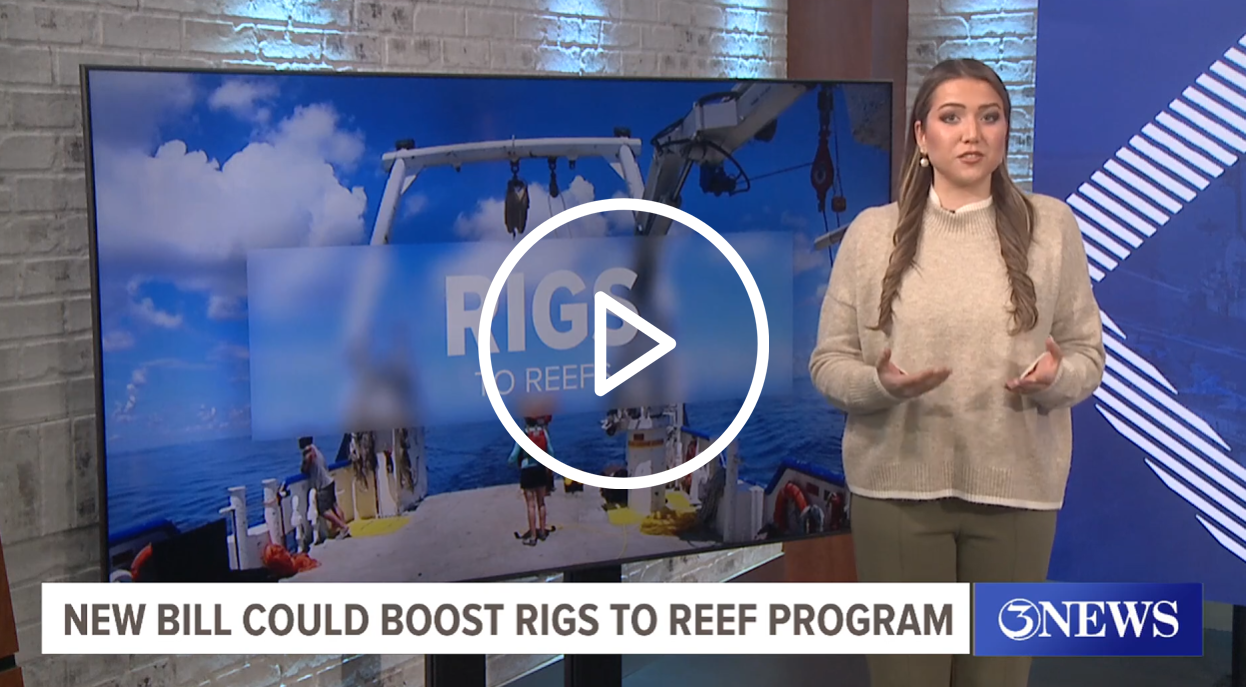Rigs-To-Reefs
The Opportunity to Save Exceptional Marine Habitat
For more than three quarters of a century, energy infrastructure on the Outer Continental Shelf has boosted productivity and served as the catalyst for teeming communities of fish, corals, and other marine life – but it is being removed at an alarming rate. The Marine Fisheries Habitat Protection Act will ensure critical habitat remains in the water to the benefit of countless species and anglers nationwide.
“At its core, the Marine Fisheries Habitat Protection program is a simple yet powerful idea. Instead of tearing down structures that have become vibrant marine ecosystems, we can repurpose them to benefit the environment, fishermen, and taxpayers alike. As someone who has fished in the Gulf my entire life, I can tell you that the best fishing is always near these rigs. When we remove them entirely, we’re not just losing a structure—we’re destroying entire ecosystems. This bill is a no-brainer for coastal communities, sportsmen, and marine life alike.”
 Congressional Sportsmen's Caucus Member
Congressional Sportsmen's Caucus Member
Congressman Mike Ezell (MS)
“Today, I’m proud to co-lead the Marine Fisheries Habitat Protection Act with my colleagues Congressmen Ezell and Carter. Our legislation will help create a pathway for more rig conversions and bolster the overall program that is repurposing out-of-service offshore oil and natural gas production platforms into thriving areas for aquatic wildlife.”
 Congressional Sportsmen's Caucus Member Congressman Marc Veasey (TX)
Congressional Sportsmen's Caucus Member Congressman Marc Veasey (TX)
“The Marine Fisheries Habitat Protection Act is a smart, science-backed solution that turns yesterday’s energy infrastructure into tomorrow’s marine sanctuaries. By transforming retired offshore platforms into artificial reefs, we’re preserving critical habitat for Gulf marine life, promoting biodiversity, and supporting our recreational and commercial fishermen. This bipartisan legislation shows that energy policy and environmental stewardship don’t have to be at odds. When done responsibly, Rigs-to-Reefs is a win for conservation, a win for coastal communities, and a win for the future of the Gulf.”
 Congressional Sportsmen's Caucus Member & Vice-Chair
Congressional Sportsmen's Caucus Member & Vice-Chair
Congressman Troy Carter (LA)
THE SCIENCE IS CLEAR
“Where they exist, offshore oil and gas platforms are the catalyst for teeming reef fish communities and offer recreational anglers consistent, reliable fishing destinations. While some claim they are simply fish attractors and not producers, the value they provide for enhancing marine productivity and biodiversity is clear in the scientific literature. Unfortunately, we’re losing them at an alarming rate.”
Chris Horton, CSF's Senior Director of Fisheries Policy

Oil and gas platforms off the coast of California have the highest secondary fish production of any marine habitat that has been studied. (PNAS)
Platform removals in the Gulf of Mexico are likely having significant adverse impacts on local fisheries. (BOEM Study)

Oil and gas platforms have facilitated the expansion of coral populations in the Gulf of Mexico and have intrinsic environmental value. (Marine Ecology Progress Series)
Of the species of coral commonly found on platforms in the Gulf of Mexico, two are on the IUCN (Symmetrical Brain Coral / Ten-ray Star Coral) critically endangered list globally.

Secondary productivity from platforms in the Gulf of Mexico does supplement the diets of reef dependent finfish. (American Fisheries Society Symposium)
A study in the Mediterranean demonstrated that artificial reefs effectively support biomass production through locally produced organic matter. (Marine Ecology Progress Series)
Our Partners
Anglers, commercial fishermen, divers, and others are concerned with the increasing pace of removal of oil and gas platforms from our coastal waters, most of which are surrounded by abundant marine life. The recreational angling community is united in our efforts to ensure that platforms with established fish and coral communities can remain as artificial habitat for generations to come.


















